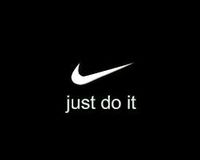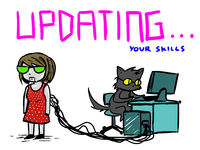Think of this as Volume 18, Number 2 of the newsletter I have written weekly since March, 1997. Enjoy.

Because “Googling it” is just so damned easy, and it's something that more of us need to make a habit of.
I can't tell you how often, while on social networks, someone makes a claim that can be easily sustained or (more often) refuted with a quick Google search. I've been making a habit of this since before Google existed. As soon as Yahoo came along, in 1994, I was checking my facts through it, and linking to those facts, “link rot” be damned.
Maybe we should be careful about this, and cautious, but I find most editors brain dead on that score. They reject links to Wikipedia and to competitors' stories. I'm old enough to remember when papers routinely credited competitors for scoops before adding their two cents. Now they refuse to, even though it's much easier to do than it was. It's stupid and selfish.

When in doubt, Google it.
If you don't like Google, try another search engine. Try Wikipedia. Seriously, it's not half as bad as critics make it out to be. Try Yahoo, or Bing. If you're Chinese, try Baidu. Russian? Yandex. When you have a doubt in your mind about something, try the Internet. Don't go into any debate just relying on your own head.
If my own writing career has been marked by anything, it's this. I like to have my sources close. When I started out, with the Houston Business Journal, way back in 1979, I used to annoy sources by pounding out their words, as they said them, on an old IBM Selectric typewriter. Typing what the other person says has always given me the best quotes, the most defensible quotes. Trying to puzzle out my own handwriting is always a chore, and I unfortunately never learned shorthand.

I took this habit with me to Interactive Age in 1994 but I quickly discovered links, and I was in love. Still am. Don't take my word for it, please. Here's where I got it. I've been fighting a battle to use links ever since.
Many editors hate links. This attitude makes no sense to me. You can't trust the Internet, they say. Well, then, who can you trust? You want people to trust you? Why? If you can't prove your sources, if you won't tell us how you claim to know this, why should I believe you about anything?
There's a reason for this, other than insecurity. I have a bad short-term memory. I'm bad with names, bad with numbers. I transpose them in my head going from tab-to-tab. This leads to mistakes. It has cost me every job I ever had, in time. Bad habits for a journalist, I know, but I always felt the industry would move toward me, away from a dull recitation of stale facts and toward creative interpretation of what everyone claims to know, adding a little to the pile of understanding each time. That's basically what has happened.

My attitude, during my working life, has been considered unusual, but I think the use of this technique is growing in younger writers, and I applaud it.
Now if we can just get people used to doing it in their everyday lives. Look, the Google is just a tab away, no matter where you are online. Even on a Kindle, just open the browser and ask if you have a question. Get used to getting it right.
Sure, this doesn't always work when you're talking about opinions. Conservatives have their favorite sources, which they think speak truth to power, and they ignore liberals' links to their own favored sources. That's fine. That's debate. That's politics. Time proves which side has truth on its side over time. The fact that neither side admits when they're wrong is a problem, but it's a problem you can correct in your own life by double-checking everything, using this resource.

I have written before about Moore's Law of Training, or Moore's Law of Learning. There is no such thing. Which is the point. We learn only as fast as we learn.
In education this meant that, for years, computing could not fulfill its promise. As soon as teachers were taught to use a computing system, it was obsolete. CD-ROM content became obsolete within a year, and the kids got bored, but the school district couldn't buy new libraries every year, either. It was only with the mass deployment of Internet resources that educational computing became possible, because those resources update centrally, and clients don't have to be updated nearly as quickly as before.

A willingness to use these new resources is a habit of mind that has to be learned. It has benefited me enormously as a journalist, and kept me current on the things I've needed to know, kept me relevant to many generations of editors.
It will benefit you, too, regardless of your age.
Imagine what it will mean when people around the world learn to Just Google It – what will happen to the pace of change then?











+1
+1
What will happen to the pace of change? Just Google it. LOL
What will happen to the pace of change? Just Google it. LOL